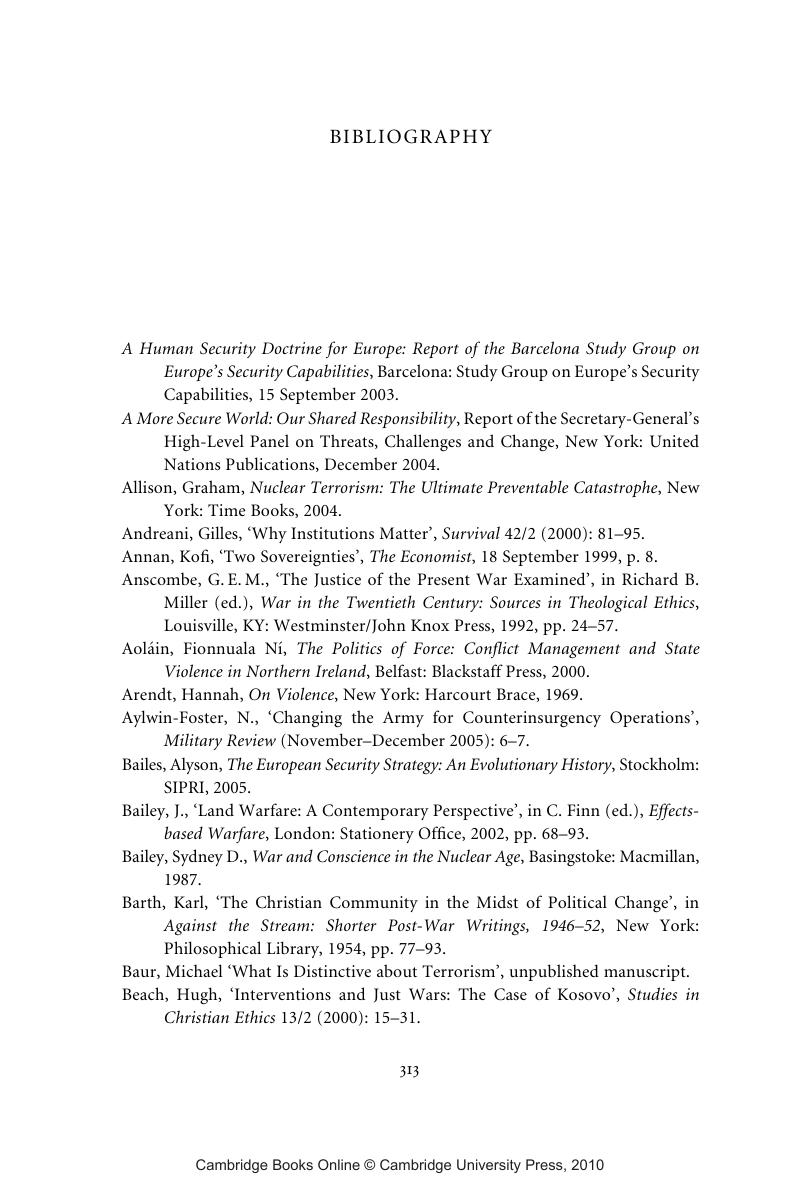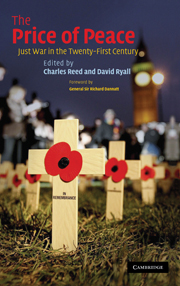Book contents
- Frontmatter
- Contents
- Notes on contributors
- Foreword by Richard Dannatt
- Acknowledgements
- 1 Introduction
- PART I A framework for ethical decision making: state and civil society-based approaches
- PART II Responding justly to new threats
- PART III Fighting wars justly
- PART IV Securing peace justly
- PART V Concluding reflections
- Bibliography
- Index
- References
Bibliography
Published online by Cambridge University Press: 03 December 2009
- Frontmatter
- Contents
- Notes on contributors
- Foreword by Richard Dannatt
- Acknowledgements
- 1 Introduction
- PART I A framework for ethical decision making: state and civil society-based approaches
- PART II Responding justly to new threats
- PART III Fighting wars justly
- PART IV Securing peace justly
- PART V Concluding reflections
- Bibliography
- Index
- References
Summary

- Type
- Chapter
- Information
- The Price of PeaceJust War in the Twenty-First Century, pp. 313 - 322Publisher: Cambridge University PressPrint publication year: 2007



